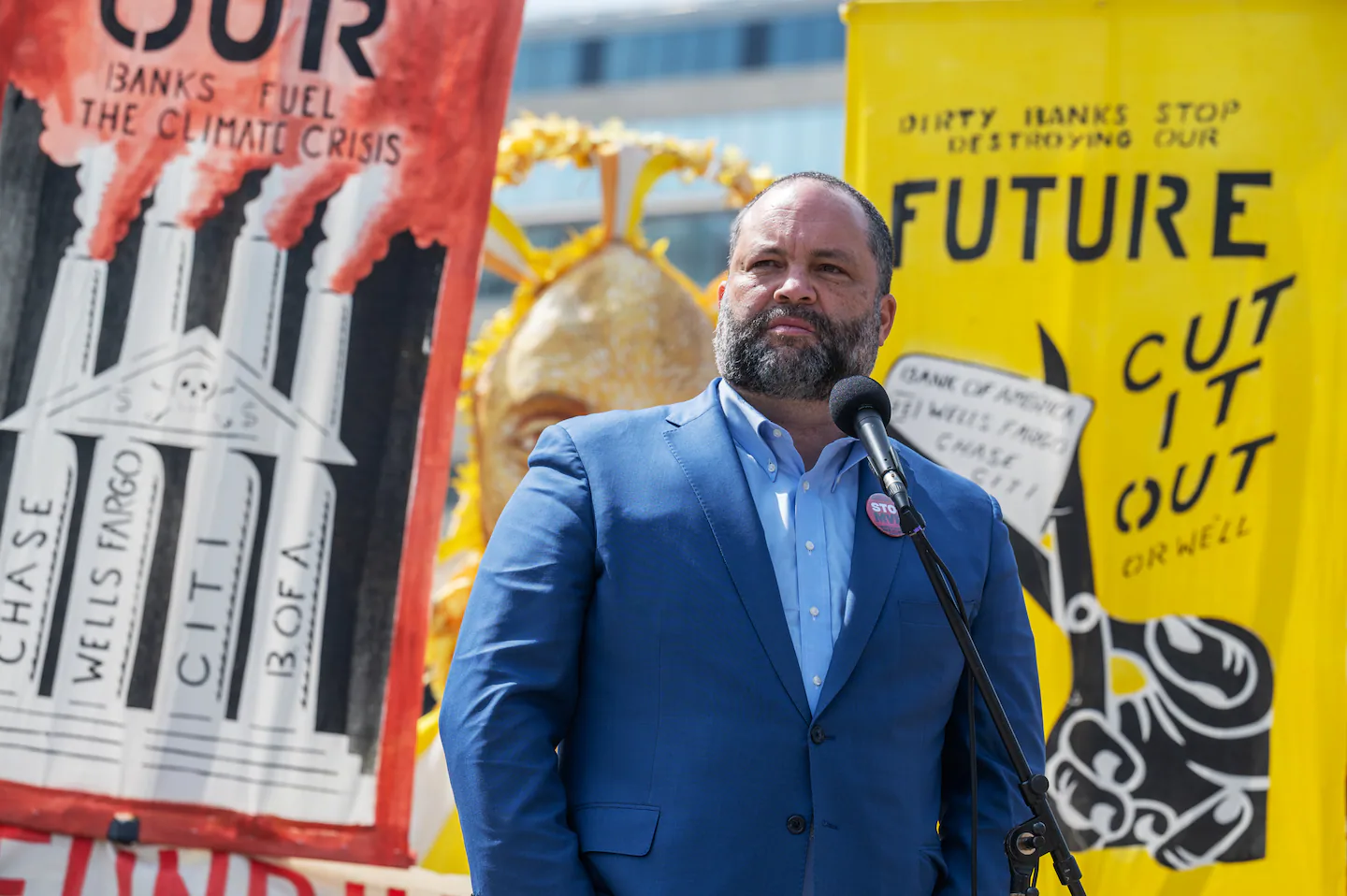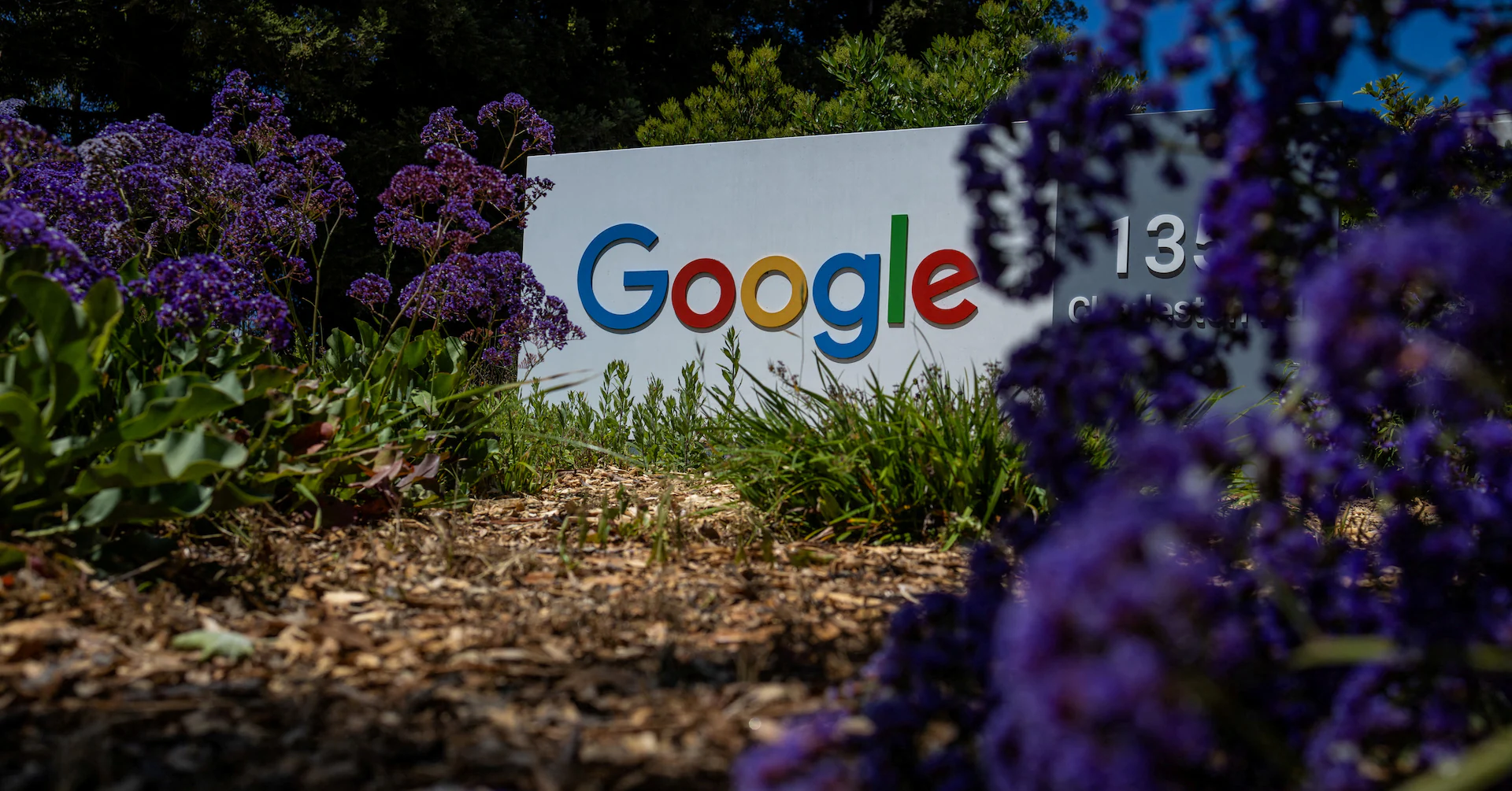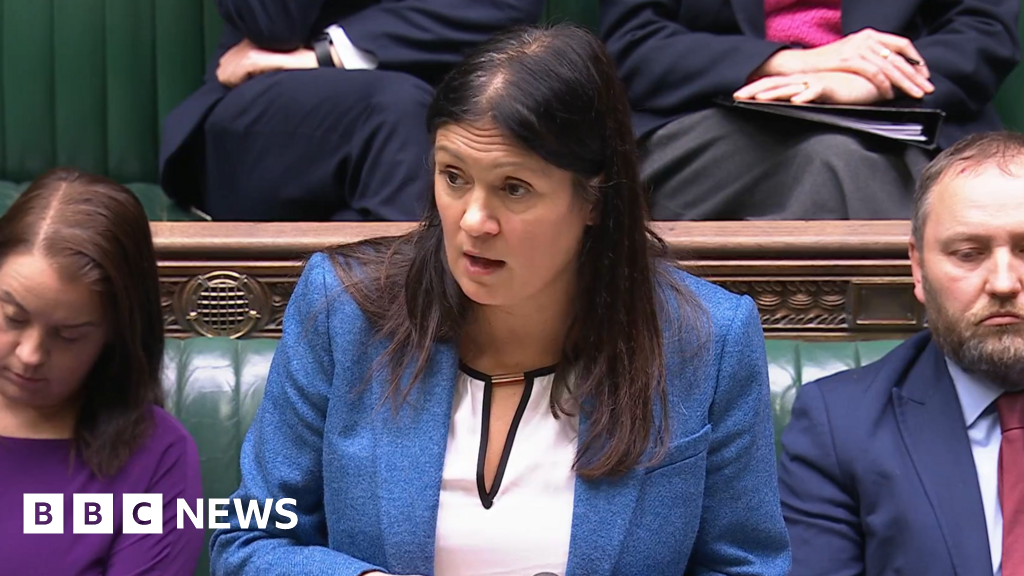Copyright The Boston Globe

And this year, as the Trump administration returned better organized and better prepared than in its first term, the Sierra Club was the opposite. While Trump boosted coal power, canceled wind farms and rolled back pollution limits, the club was consumed by internal chaos, culminating when the board fired its executive director, Ben Jealous, a former president of the NAACP. “Sierra Club is in a downward spiral,” a group of managers wrote in a letter reviewed by The New York Times to the club’s leadership in June. That spiral helps Trump. But it was not his doing. The Sierra Club did this to itself. During Trump’s first term, when the Sierra Club was flush with donations, its leaders sought to expand far beyond environmentalism, embracing other progressive causes. Those included racial justice, labor rights, gay rights, immigrant rights and more. They stand by that shift today. “As long as climate change and environmental protection are viewed as just being concerns for a limited group of elites, we lose,” Loren Blackford, the group’s new executive director, said in a statement. “We only win by building a powerful, diverse movement.” The downside, according to interviews with people involved with the group and a review of financial records and internal documents, was that the Sierra Club lost its focus, then its strength. By 2022, the club had exhausted its finances and splintered its coalition. It drove away longtime volunteers who loved the club’s single-minded defense of the environment, by asking them to fully embrace its pivot to the left. Some even felt they were investigated by the club for failing to go along. Many hardcore supporters felt the Sierra Club was casting aside the key to its success: It was an eclectic group of activists who had one, and sometimes only one, cause in common. The club hired Jealous, its first Black executive director, that year to stop that slide, but his tenure accelerated it as accusations of sexual harassment, bullying, and overspending piled up. The club became one in a string of “resistance” groups from Trump’s first administration that arrived at his second already exhausted from liberal infighting. “It’s almost like uprooting a sequoia and converting it into an ax handle,” said Aaron Mair, a former board president. The club’s current leaders rejected the idea that their decisions had caused the declines in revenue and membership. Instead, they blamed external factors: diminished alarm among environmentalists after the election of Joe Biden in 2020, post-pandemic inflation and a stock-market dip in 2022. Turning on Its Founder The Sierra Club was founded in 1892 to protect the Sierra Nevada in California, but it grew into a giant of American environmentalism. It helped expand national parks, keep dams out of the Grand Canyon and establish Earth Day. In 2016, the club was at the height of its success, leading what many in the green movement consider the most successful environmental campaign put on by anyone in the 21st century: “Beyond Coal.” Its secret was focus, according to activists involved. The club put its energy behind the single, measurable goal of closing all of the country’s 500-plus carbon-spewing, coal-fired power plants. Armed with more than $120 million from billionaire Michael Bloomberg, they used lawsuits, petitions and protests to convince regulators and utilities that coal plants were too dirty and expensive to keep operating. By 2017, half of the plants were slated to close, the result of this intense activism, plus tighter regulations and an influx of cheap natural gas flooding the energy sector. “The game plan was clear, and it was working,” said Abigail Dillen, president of the environmental group Earthjustice, which also took part. Then Trump was elected. Fundraising jumped by $2 million in the two weeks after Election Day. The number of volunteers surged. By 2019, the club’s internal records counted 4 million “champions” -- a group that included dues-paying members as well as supporters who had donated, signed petitions or participated in events. As Trump sought to roll back a broad range of progressive victories, the club’s leaders decided their old strategy was too small for the moment. “We can’t defend the environment by shutting ourselves up in a big, green box labeled ‘environmental issues,’” the group’s executive director, Michael Brune, wrote to members in 2017. By broadening the mission, they also hoped to recruit more young people, who they thought cared as much about social justice as coal plants. First, they sought to transform their own workplace, demonstrating a commitment to fair wages. The club agreed to expand the number of staff covered by an employee union, and to raise union members’ salaries by an average of more than 30% over five years. Even the union was surprised. “We were thrilled,” said Larry Williams Jr., who was president of the union at the time. “I had people calling me crying, saying, ‘Because of your contract, I was able to buy my first bike and bike to work,’ or pay my rent.” Because of increased salaries, health care costs and additional hiring, labor costs would double between 2016 and 2024, according to an internal club budget document. At the same time, the club asked its supporters to agree with positions further from the environmental causes that had attracted them in the first place. It issued an “equity language guide,” which warned employees to be cautious about using the words “vibrant” and “hardworking,” because they reinforced racist tropes. “Lame duck session” was out, because “lame” was offensive. Even “Americans” should be avoided, the guide said, because it excluded non-U.S. citizens. After the murder of George Floyd in 2020, the group called for defunding the police and providing reparations for slavery. The club even turned on its own founder, John Muir, with Brune saying the environmental icon had used “deeply harmful racist stereotypes” in his writings about Native Americans and Black people in the 1860s. Mair, who had been the group’s first Black board president, wrote a rebuttal defending the founder. The Sierra Club refused to publish it, and censured him when he published it elsewhere. “Do we want to still be the Sierra Club anymore?” Mair said he thought at the time. In late 2020, the club surveyed its dues-paying members, its most hardcore supporters. The members said they supported racial justice, but when asked to choose among priorities they ranked climate change first, and racism tied for last. More than half of members also said they were worried that the club’s shift toward social justice “will detract from its core mission of protecting the environment” and alienate conservatives, according to a copy of the survey obtained by the Times. Jim Dougherty, an environmental activist and Sierra Club director, said he had raised objections to a 2019 budget that called for the equivalent of 108 full-time employees to work on a “national equity investment.” Most of those were not new hires; rather a refocus of the responsibilities of many current employees. The club said that was meant to address the “problematic lack of diversity and inclusion in the environmental movement and to make the Sierra Club a welcoming and supportive place to work for all employees.” “I said, ‘We have two FTEs devoted to Trump’s war on the Arctic refuge, and we have 108 going to DEI, and I don’t think we have our priorities straight,’” Dougherty said, using the acronyms for “full-time employees” and “diversity, equity and inclusion.” Dougherty said no other board members agreed, and the budget passed. Unforced Errors In 2021, Trump left office, removing the common enemy that had helped hold the Sierra Club’s shaky coalition together. The numbers of donations and champions, which both peaked in 2019, began to drop further. The Biden presidency brought significant policy victories, as the Sierra Club helped lobby for sharp increases in funding for clean energy. But internally, big gambles began to go bad. In 2022, a group of union members asked the Sierra Club to “follow [its] values of antiracism and justice” and cancel sightseeing trips it operated in Israel, in protest of the country’s treatment of Palestinians. “Palestine is an environmental issue from our standpoint,” Erica Dodt, the president of the Progressive Workers’ Union, which includes Sierra Club employees, said in an interview. “People are a huge part of our environment.” The club postponed the trips. But Sierra Club officials said the club heard a backlash from donors including Bloomberg, the major funder of “Beyond Coal” who also gave to humanitarian causes in Israel. His staff declined to comment. The Sierra Club said he is still a donor. Within days, the Sierra Club reversed itself and announced more trips to Israel. The back and forth meant few people were satisfied. The next month, the group’s count of champions fell by 130,000, one of the largest decreases in a single month. Internally, the club’s commitment to a progressive workplace curdled into a culture of allegations and investigations. After accusations of past sexual misconduct involving current volunteers emerged in 2020, the club reexamined its systems and expanded a mechanism to discipline volunteers. While in some cases this new system empowered staffers to sever volunteer relationships that could not be fixed, it also resulted in a system where some volunteers said they were investigated, without being told why. Delia Malone, an ecologist and volunteer for the club’s Colorado chapter, said she heard from attorneys hired by the Sierra Club, seeking to interview her as part of an investigation against her. “I said, ‘What’s the claim, and who made the claim?’ And they said, ‘We can’t tell you that,’” Malone said. Malone thought that someone else in the chapter had filed a complaint. She recalled an incident when a club staff member had scolded her for saying that the club should lobby Colorado’s legislature for more protections for wolves. “One of the staff said, ‘That’s fine, Delia. But what do wolves have to do with equity, justice and inclusion?’” Malone said. The Colorado chapter declined to say why Malone was investigated, but said that “no one was investigated or accused of values misalignment on the basis of wolf conservation efforts.” She still volunteers for the club. Other activists simply left, saying in interviews that they believed others in the club had weaponized the system against them, recasting policy disagreements as bullying or toxic behavior. The Sierra Club said it now tells people why they are being investigated. By 2022, the club’s myriad problems, many of which increased costs and decreased revenues, had snowballed into a fiscal crisis. The group faced a projected budget deficit of nearly $40 million, according to an internal document. To lead them out of this moment, the club chose a new leader, Jealous, who had experience running another large advocacy organization with social justice at its core. He promised employees to make the Sierra Club “the most progressive and inclusive employer in the movement, if not the nation.” No Regrets Jealous arrived to face a budget in the red, though he says now that club leaders concealed the scale of their problems. Jealous began three rounds of layoffs, eliminating at least 80 people from a staff of about 805. At the same time, he hired several longtime associates at high salaries. In 2022, there were two people making $300,000 or more at the Sierra Club. By 2024, there were 10. Jealous said in a statement that those salaries were typical for a large nonprofit. Jealous also found himself in a feud with one of the group’s unions, which threatened to strike and accused the club of abandoning its commitment to a progressive workplace. In a statement, Jealous said he had made significant progress in cutting the club’s budget and rebuilding its support, but had been undercut by the union’s public attacks. There is no doubt, he said, that the “campaign attacks that the union carried out against the organization before I was hired and doubled down on after I became executive director were weakening efforts to raise money and to do the work.” Jealous accused the union in an internal presentation of using racist tropes to attack him, citing an X social media account that called him a “Civil Rights grifter” and a clown. The union said it had no connection to the account. At the same time, the Sierra Club began to face tougher opposition in the coal fight. Demand for electricity was increasing, thanks in part to the needs of data centers and artificial intelligence. The pace of victories slowed, and some plants reversed or canceled their plans to close. Even Trump’s return could not solve the Sierra Club’s problems. “We didn’t have a direct ‘Trump bump’ in the same way we did for the first Trump administration,” Blackford said in an interview. In the month after Trump won the 2024 election, the club’s internal count of the group it called champions declined. As of August, internal tracking documents show it stood at 1.5 million, down about 60% from its high in 2019. The Sierra Club said it had reduced its efforts to recruit these more casual supporters in 2023, after the bulk of this decline occurred. Its hardest-core supporters have also dwindled: The number of dues-paying members has fallen by 27% from its level at the start of 2021. By this summer, groups of both volunteers and staff had called for Jealous’ ouster, accusing him of bullying, financial mismanagement, and weak leadership. In addition, at least one employee filed a claim with the board accusing Jealous of sexual harassment, according to two people familiar with the situation who spoke on condition of anonymity because they were not authorized to discuss a personnel matter. Jealous and the club declined to comment about complaints against him. It is unclear what the outcome of the complaints was, but in July, the Sierra Club’s board voted unanimously to fire Jealous for cause, without stating publicly what the cause was. In response, Jealous filed a discrimination complaint against the club in California, where it is headquartered. A spokesperson for Jealous said that claim was in arbitration. Since he left, the Sierra Club has shown no signs of reverting to its focus on strictly environmental issues. In recent weeks, supporters who clicked on the group’s website for “current campaigns” were presented with 131 petitions, some out of date, like calls to support clean-energy funding that Trump has already gutted, or to support a voting-rights bill that died in 2023. Patrick Murphy, the club’s current board president, who has helped lead the group since 2020, said in an interview that he could not name any decision he regretted. “I have a hard time pinpointing how I believe we should have made different choices,” Murphy said. “And I’m happy with where we are today."



